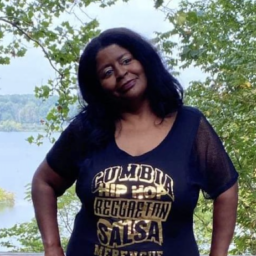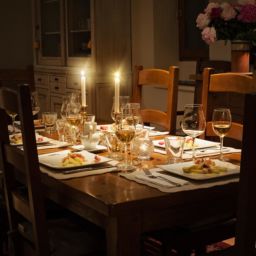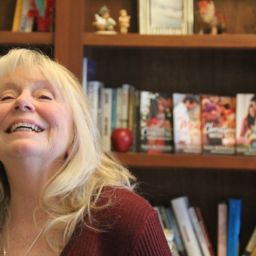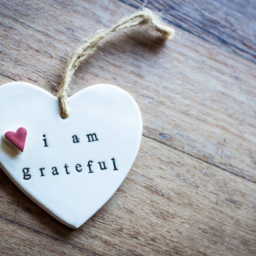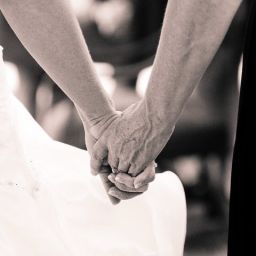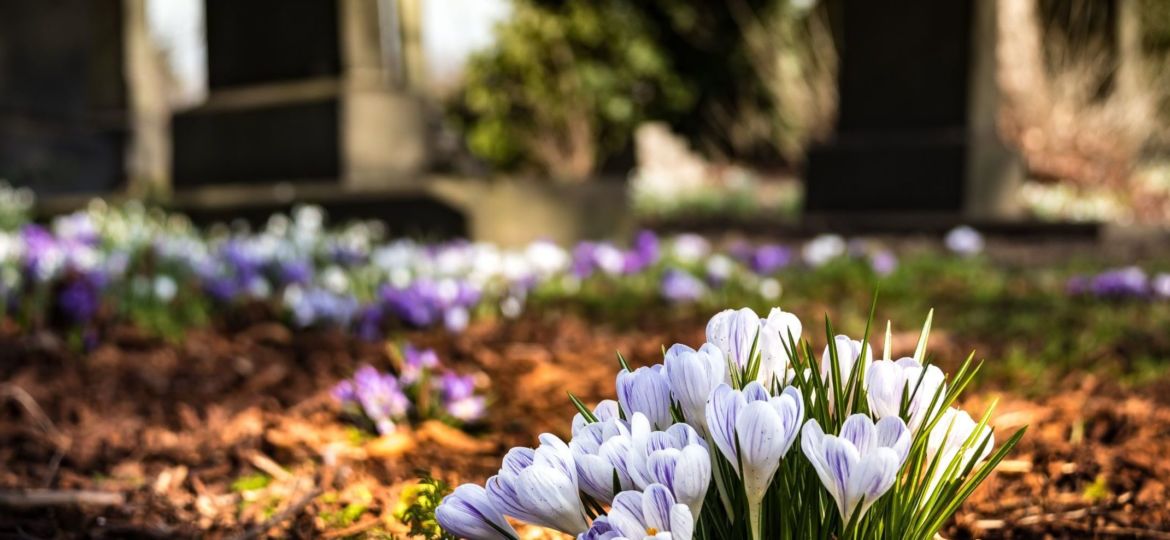

I remember hearing that line in a movie. Only the “she” was someone’s name, not my sister Nancy, who’d made me laugh, made me cry, and kept me safe every day of my life. But now it was her, and life will never be the same again. She died in April, surrounded by family and friends. Spring was wet and cold and windy this year, but I don’t remember what the weather was like that day, only that everything became gray.
She was 14 when I was born, and although she was pleased I wasn’t a brother like the three siblings in a row before me, she was pretty disgruntled about the whole baby thing. However, I was a girl, after all, and as long as she didn’t have to take care of me, I was okay with her.
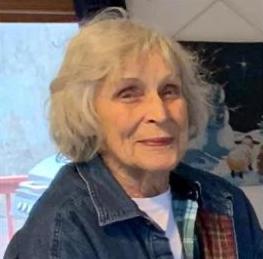
She worked in a department store while still in high school, and she spent a healthy amount of her paycheck on clothes for me. The two items that stand out in my memory are a blue nylon dress and a black corduroy jumper. I wore them until the hems could no longer be let out. Twenty-some years later, my daughter wore them, too. Nancy learned about things being on sale and buying for quality in her time at Senger Dry Goods, lessons she used the rest of her life. I cherished the love in those two dresses. All these many years later they hang in a closet upstairs, and when I hold the blue nylon against my cheek, I still feel that love.
I worshiped her.
When she and my brother-in-law made me the only aunt in the first grade and again when I was in second grade, it was my first glimpse of fame. I liked it. The fame, I mean, and the nieces were okay, too, all blonde and pink and frilly. I wasn’t thrilled about being displaced as the youngest member of the family, but it had to happen sometime.
Things changed when Nancy had a family of her own, though. The girlfriend-type relationship I’d hoped to share with her as I got older didn’t materialize. She was closer to my brothers than to me. I was in the way more often than not, and a pain in her neck when I couldn’t be ignored. In that time between her achievement of adulthood and mine, the distance became a minefield — no matter where either of us stepped, something exploded.
We came together later, when she and my husband formed a mutual admiration society. When she loved my kids as fiercely as I loved hers. When she was my soft spot to fall more than once and I hope I was occasionally hers, too.
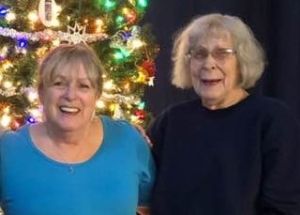
But before that, during the minefield years, there were gentle places. I remember wanting to wear heels because virtually all of my friends did, but Mom wouldn’t allow it. When we went to my brother’s wedding, though, Nancy asked me to switch shoes with her because her heels were “hurting her feet.” They felt wonderful on mine, and they were so pretty. For that afternoon, I got to feel like everyone else — which was my primary goal in life at the time.
My friends loved going to her house, because she was fun, a wonderful cook, and treated people like they were absolutely the ones she wanted to see that day.
When, as a single mother, I developed a kidney infection I thought just might be the death of me — which would have been particularly upsetting after I survived labor and my son’s breech birth — Nancy drug me to her doctor and paid the bill. I survived. I never paid her back.
During a bad marriage day, I sat at her table and stared into space and despaired. She poured coffee and listened. She knew very well what despair needed, and gave it unstintingly.
Sometimes we traveled together. We both loved it, sought out restaurants no one had ever heard of, and drove with an attitude of “Let’s go that way. What do you think?” and ending up in someone’s driveway by accident.
But things changed. We changed, I suppose. Family dynamics are sometimes uncomfortable. Occasionally unhappy. We still got along, still saw each other, still exchanged “Love yous” and hugs when we parted. But we were more different than we were alike.
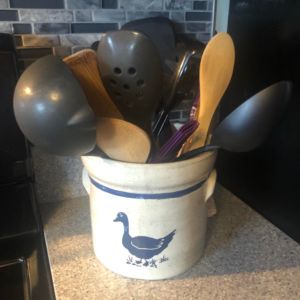
Late last winter, I was looking for a crock to put kitchen utensils in. I wanted one that was either blue or decorated in blue because it’s my favorite color and it’s all over my kitchen. I wasn’t having any luck, and one day I walked into her house and there was one right there on her counter. I started laughing. “Where did you get that? I’ve been looking all over for one.”
She looked at it, thinking. “I don’t remember. I think Tom had it.” Tom was our brother, who died in 2019. They had always been especially close.
When I left, she said, “Wait a minute,” and reached for the crock, dumping its contents on the counter where it had sat. She handed it to me.
“Oh.” I was flustered. As God was my witness, I hadn’t been hinting. “You don’t have to do that. I’ll keep—”
But she flapped her hand at me, shooing me out, much as Mom used to do with her apron. “You should have it.”
I took it, grateful. Every time I pass it, sitting on my own counter full of things I use on a daily basis, I’m grateful again. It was the last gift she gave me. Every time I see it, I see her face, her smile, and hear “Love you.”
Being with her and her family a few months later … in the spring when she left us, didn’t feel like a gift, and yet it was. Just as her life, her always-laughter, and her homemade bread and flawless pie crust were all gifts. She was the eldest in the family, the one who thought it was her mission in life to take care of everyone. She never had so little that she wasn’t happy to give it away to someone whose need was greater than hers.
I have a lifetime of memories with Nancy, ones that make me laugh, make me cry, and that I will keep safe by passing on. I miss her every day, but when I walk past the crock on the counter and run light fingers over its surface, I know she’s never really left us. I smile at her in case she’s watching, and, once again, I’m grateful.
All of our content—including this article—is completely free. However, we’d love if you would please consider supporting our journalism with an Indy Maven membership.







